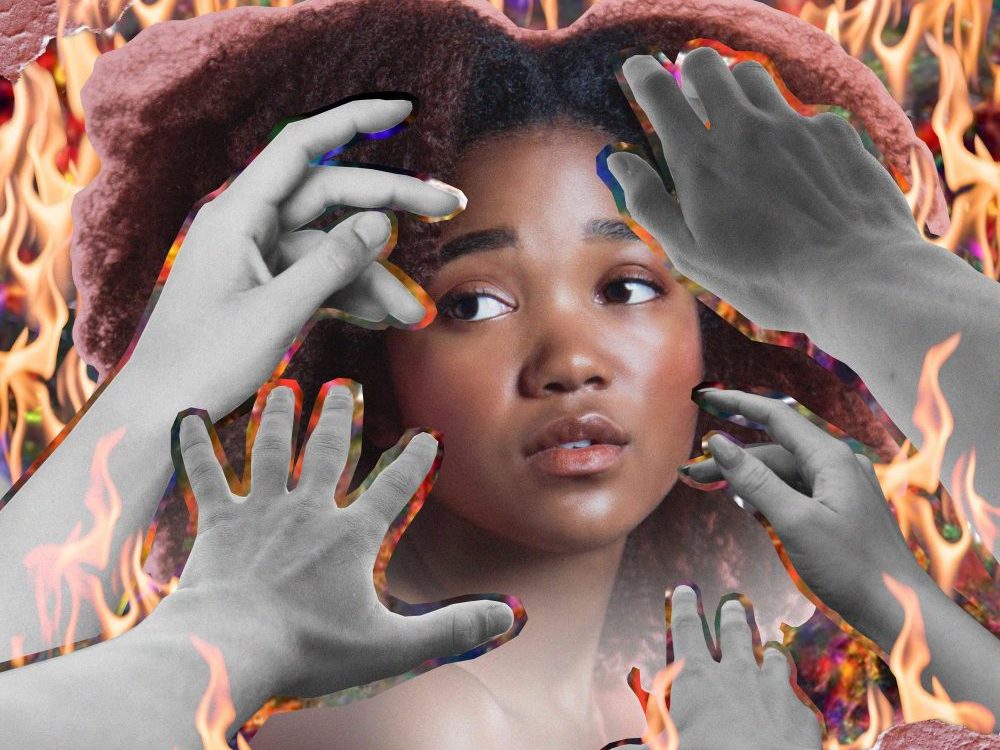Over the past few weeks, we’ve been mourning the deaths of several African Americans who have died at the hands of the police. Though Black Lives Matter was founded in 2013, the murder of George Floyd has had a significant impact on the BLM movement.
Though Black Lives Matter was founded in 2013, the murder of George Floyd has had a significant impact on the BLM movement. But, if I asked you who founded this movement – who started this momentum, would you even be aware that it was three Black women.
So, why are Black women continuously being left out of the narrative?
Kimberlé Crenshaw, coined the term intersectionality to explain the way Black women are more likely to be criminalised by the law due to their race and gender. #SayHerName was created to shine a light on the African American women whose names are often unheard during the conversation about police brutality. As Black women, we have to navigate experiencing racism and sexism daily and yet our stories are rarely told.
This is partly due to the fact that we are seen as ‘strong’ and being able to handle almost anything. We’re continuously championed for our strength but this means we often aren’t looked after. It also means we aren’t allowed to be weak or vulnerable. And, when we do feel weak we’re told ‘you can handle it’ which subsequently affects our mental health. According to the NHS, Black British Women are more likely to experience mental health issues such as depression, anxiety, panic, and OCD.
I struggled with my mental health during university. I was always expected to do well because I appear as being naturally confident and outspoken. Whenever I expressed to my peers and tutors that I was struggling with my work I was continuously told ‘you’ll be fine’. There wasn’t really any room for sympathy, as people couldn’t imagine me requiring help. Which had a huge effect on my mental health as I was always feeling anxious about my work and didn’t really feel I was getting the help I wanted.
Francesca Rockey who is a 20-year-old student and founder of a nonprofit organisation called Black Geographers also had a similar experience. “I remember telling my A level geography teacher that I was struggling mentally. She said, ‘I can see something is wrong but you’re stronger than whatever it is.’ She didn’t tell me how to get help,” writes Fran. “I was no longer turning up to classes in A2 because when I needed help I was brushed off and this led to me being depressed and anxious.
Francesca adds “Teachers see Black women as being strong and capable of going through all sorts of traumatic experiences and still ‘managing’, still ‘coping’, instead of actually tackling the issues within the education system. Implicit bias from teachers and microaggressions allow the “strong” stereotype to continue by minimising the severity of the issues but silencing or dismissing black girls when they speak up and when they ask for help from support services”
Mutsa Mhende who is a twenty-five MA sociology student in Nottingham feels the pressure to be the strong one in her friendship groups. “Outside of education, even in our personal lives, were seen as the strength of friendships and relationships. I’m regularly told by people I have chosen to confide in and lean on that I am the “strongest person they know”, a statement which is rarely compounded with ‘it’s okay to be vulnerable though’.
I’m just expected to have my ‘little moment’, cry it out, and then go back to ‘thinking positively’ because I’m so “strong”. When really sometimes I need my experiences and feelings validated by friends and family to help me feel like I’m not going crazy (usually after days of sleepless nights and morning anxiety attacks)” says Musta
She adds “And that’s where the depression kicks in, because “strong Black women” are strong because society demands that of us every single day. So, when my tutor dismisses my emails about my mental health, or a friend tells me “regardless, we move!” to minimise what I am feeling as someone with mental health conditions, I feel a lot of guilt. Why am I not strong enough to just “snap out of it”? Maybe I’m actually a weak person? Maybe I don’t pray enough? Maybe I don’t want to even get myself out of this funk? And then boom – you’re blaming yourself!”
I’m unlearning the idea that I have to be a strong Black woman. But, it’s hard when you have to deal with microaggressions on a daily basis.
I’ve had to deal with racism and misogynoir from a young age but this doesn’t mean it still doesn’t affect me. We need to be listened to and more importantly, we need other people to be strong for us.
When asked what can be done to support Black women Musta writes that people should “give us the space to be vulnerable and to have a full range of emotions like other humans do. Which includes anger, as anger is usually masking hurt, sadness, betrayal, fear and a multitude of things. But we are never able to work through that process because people don’t want to hear our anger.
And then listen, really listen. Don’t listen to fix, or listen to give advice, actually listen. What do we need for this harm to not be reproduced? And how would we like to be supported? Work from that starting point.
We need to start associating Black women with words other than ‘strong’ because we’re more than the inequalities we face, we’re human.
If you’re struggling with any of the issues raised above please contact Black Minds Matter or Samaritans.









